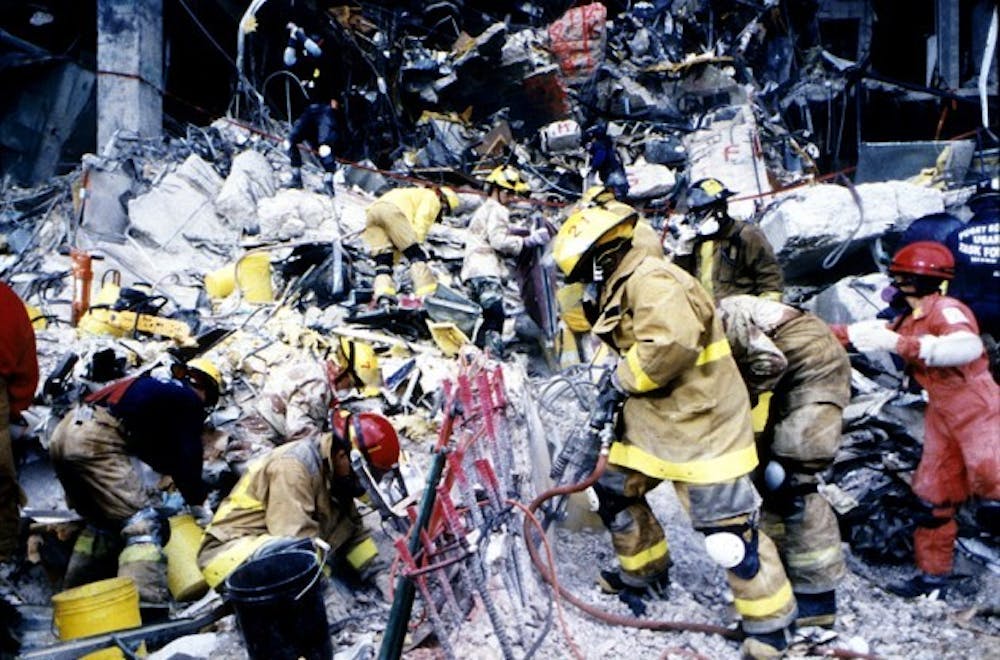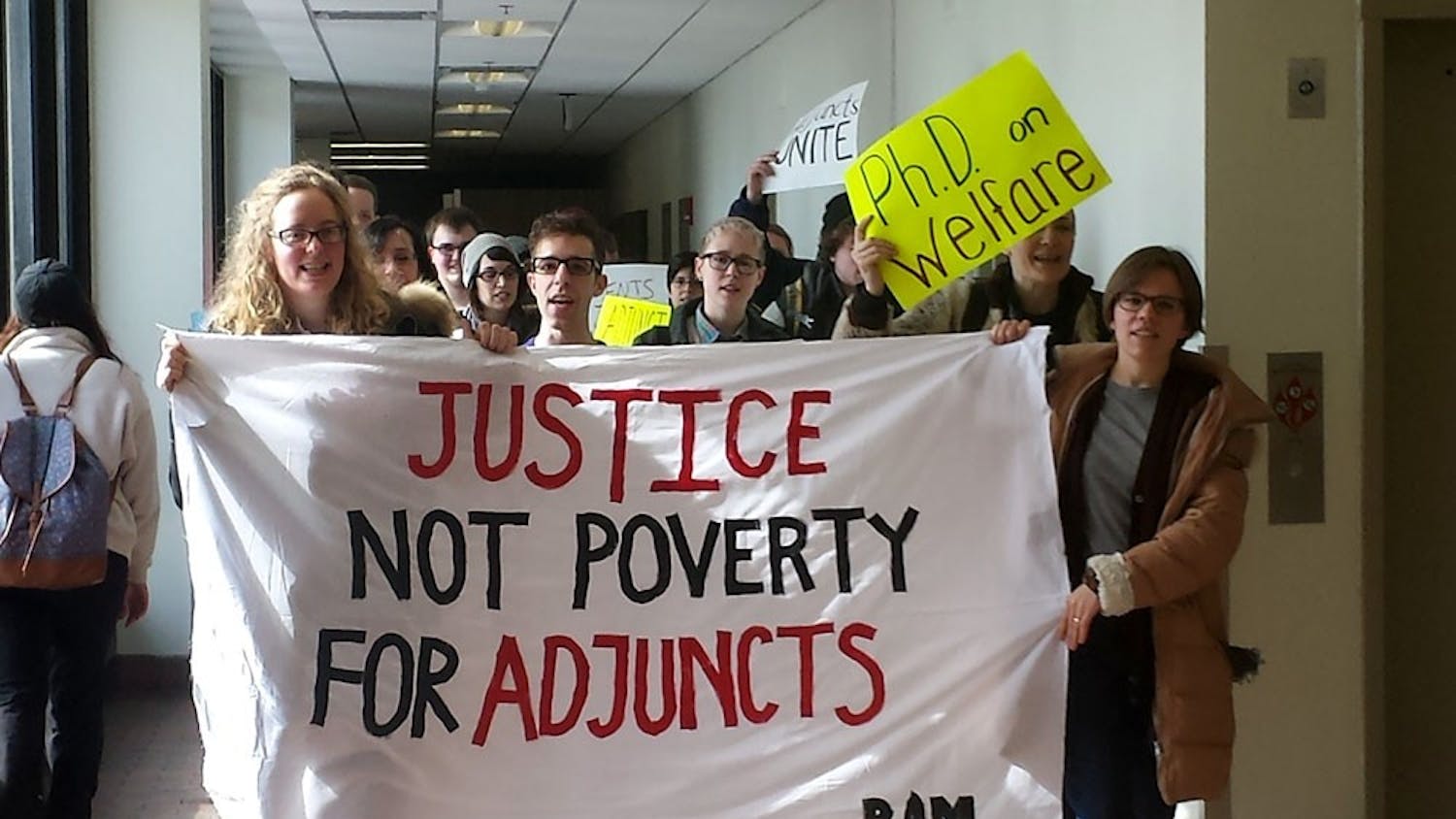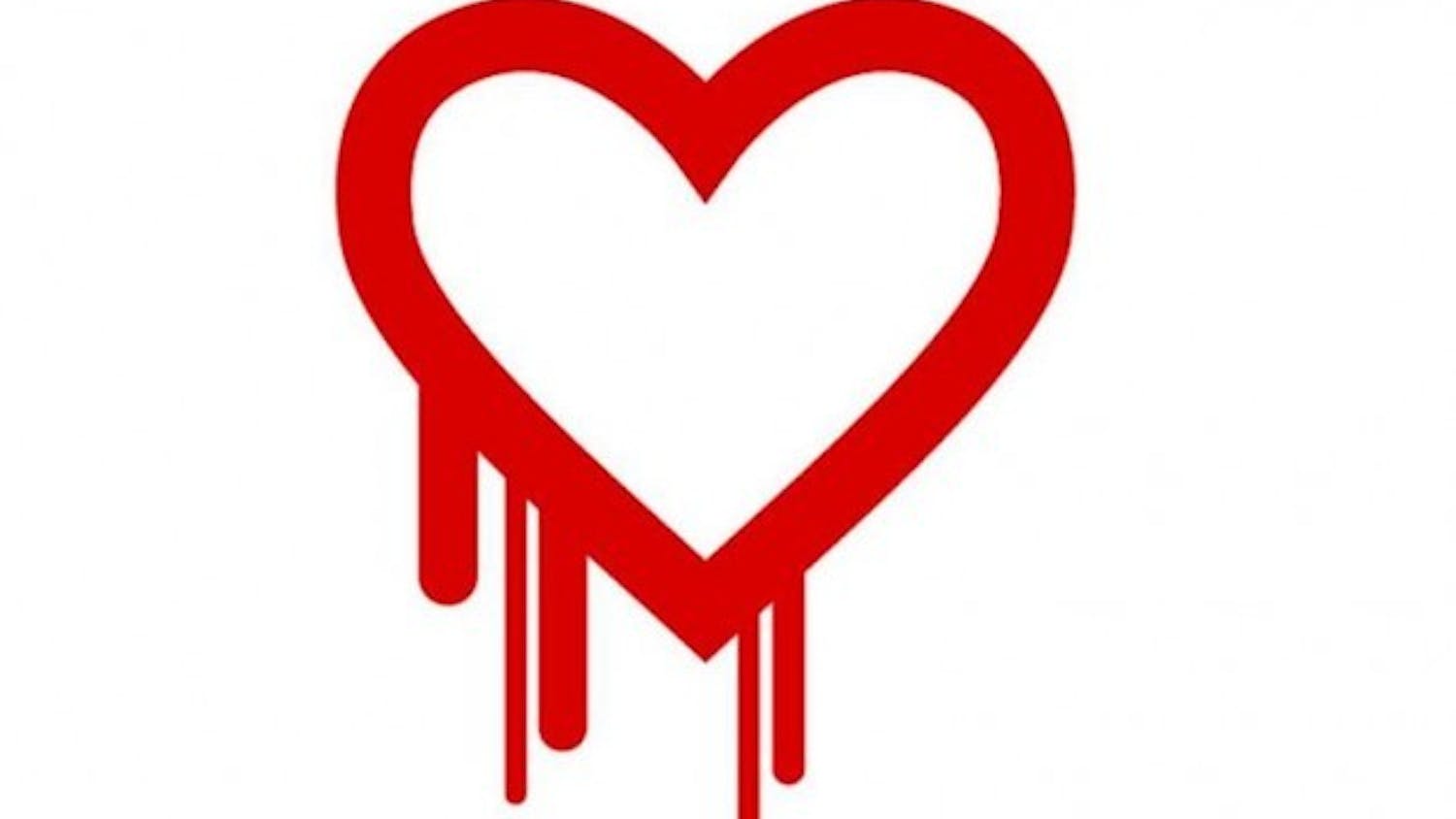Most current UB students were still wearing Pull-ups Training Pants when Timothy McVeigh detonated an explosive-filled truck and left a gaping crater in the side of the Alfred P. Murrah Federal Building in Oklahoma City.
His actions resulted in the deaths of 168 innocent people and injured over 500, many of them children from the daycare located inside the building.
Monday was the 15th anniversary of what is arguably the most infamous act of domestic terrorism on American soil.
"We commemorate the Oklahoma City Bombing because it was such a horrendous event and perhaps the first act of domestic terrorism," said Phillips Stevens, Jr., an associate professor of anthropology at UB. "A misguided young man was driven by pure anger and evil and committed mass murder."
On April 19, 1995, McVeigh changed the course of American history forever when he drove a 7,000-pound truck bomb in front of the Federal Building and set it off. In 2001, he paid for it — he was executed by lethal injection.
Here in Buffalo, there is a special connection to the tragedy. McVeigh was born in Lockport and grew up in Pendleton. He was an intense Buffalo Bills fan who truly respected the people of the Buffalo area.
Two Buffalo News reporters became the only people to interview McVeigh in person, one-on-one and in depth about why he chose to murder hundreds of people. McVeigh hand-picked Lou Michel and Dan Herbeck, both of whom still work at the Buffalo News, based on a recommendation from his father.
"Dan [Herbeck] and I became experts on the McVeigh family, starting in 1995 after the bombing," Michel said. "We researched their roots, how they flourished along the Erie Canal after they came over from Ireland and England."
After months of research, Michel began visiting McVeigh's father, Bill McVeigh, at home.
"I lived near Bill and I would stop by and visit. I treated him fairly and like a human," Michel said. "I befriended him and I don't think he ever forgot that."
McVeigh was constantly harassed by the news media for interviews. The public, who had cast him aside as a monster, still held on to lurid curiosity about McVeigh as a person. McVeigh ignored media attempts at contact. He wouldn't talk unless it was on his own terms.
By 1999, McVeigh was ready to tell his story and asked his father if he knew any trustworthy journalists. His father suggested Michel, his visitor of many years. McVeigh soon wrote a letter to Michel.
"It was stunning [to receive a letter from McVeigh]," Michel said. "He wanted to come off as a human and talk to local people, people he grew up with. We treated him like a human but never lost sight of the monstrous thing he did."
Over 45 hours, Michel and Herbeck learned more about Timothy McVeigh than perhaps even his father ever had.
"It was a very surreal experience to hear him graphically describe making a 7,000 pound bomb. At times, Dan and I would leave numb," Michel said.
McVeigh explained to the reporters his motives, his tactics, his mindset — nothing was off limits.
"Tim claims that he didn't know there was a daycare in the building and if he had known, he would have chose a different target," Michel said. "He didn't want to be known as a baby killer because he didn't want it to take away from his message. He honestly thought he was an American patriot."
Michel and Herbeck learned everything about McVeigh, his personality and his psychology.
"He was angry at the U.S. government," Michel said. "He attached himself to the thought that he was an avenger."
The Waco Siege became one of the most publicized reasons for McVeigh's attack on the federal government. In 1993, the U.S. Bureau of Alcohol, Tobacco and Firearms tried to use a search warrant at a Branch Davidian ranch called Mount Carmel Center, owned by Branch Davidians, a Protestant sect, and located outside of Waco, Texas. The residents of Mount Carmel were accused of sexual misconduct and stockpiling weapons on their ranch. Tensions escalated into a 51-day siege which ended in gunfire and an inferno that killed over 80 people.
"Psychologically, I think Tim McVeigh suffered from post-traumatic stress disorder from the first Gulf War and he compartmentalized his life," Michel said. "There were two sides to Tim McVeigh. In one part, he was an eager Bills fan and gun enthusiast. In another part, he had a raw hatred for the U.S. government and its handling of Waco. He was vulnerable."
Michel said that McVeigh was a disturbed young man who truly attached himself to the idea that he was an America patriot, but did a violent and terrible thing. Fifteen years later, when many of the world's emerging professionals and media experts don't even remember the attack, the Oklahoma City Bombing still has an impact on society.
"Its major impact lies in its timing," Stevens said. "It was domestic terrorism and it came … before the impact of foreign terrorism."
Stevens also said that its impact is changing as time progresses.
"People will attach a different meaning to it based on events of the time. " Stevens said. "Everyone takes different meaning from the event, but the fact is that everyone is affected by it because it happened on our own soil."
Michel and Herbeck still haven't come to grips with this impact on modern history, but they're working on it.
"Sometimes Dan and I can't believe we have a part in this tragic moment of history, but it was important to learn more about Tim, despite his murderous acts," Michel said. "I truly believe it's to the detriment of our society if we don't pay attention to the causes. What drives a smart young man to spiral down and become a mass murderer and terrorist?"
Michel and Herbeck published a book called American Terrorist: Timothy McVeigh and the Oklahoma City Bombing in 2001 and recently, all 45 hours of their tapes have been donated to the Russel J. Jandoli School of Journalism and Mass Communications at St. Bonaventure University.
Michel is glad that these tapes are available for research, as McVeigh can serve as an interesting case study to hopefully prevent future acts of violence.
E-mail: news@ubspectrum.com
Looking back at the Oklahoma City bombing

More
Comments



